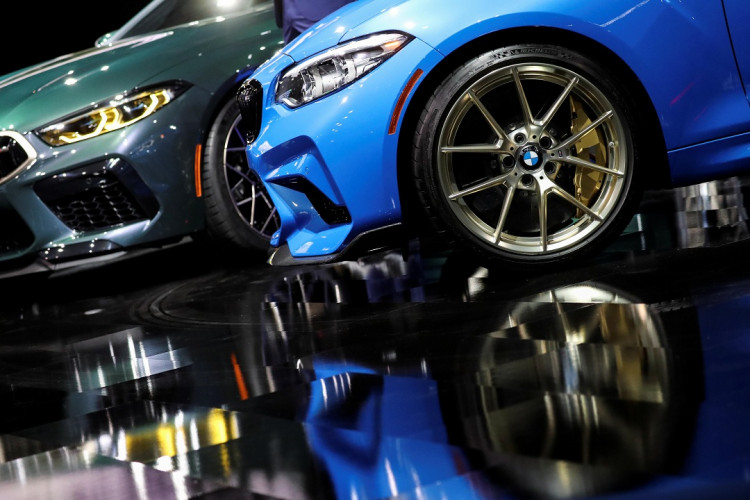The 2023 Munich Auto Show (IAA), one of the five major global auto shows founded as early as 1897, officially kicked off on September 4th. The significance of the Munich Auto Show was once unquestionable.
However, in recent years, the momentum of the Munich Auto Show has been waning, with an increasing number of traditional mainstream car brands absent and the scale of the exhibition gradually shrinking. This year, Japanese automakers like Toyota and Nissan did not participate, and even European giant STELLANTIS Group was missing from the list of exhibitors.
Nevertheless, Chinese car manufacturers and industry chain enterprises have begun to make their presence felt. Over 50 companies related to the Chinese auto industry, spanning fields from complete vehicles to battery systems and automotive software, participated in the show, accounting for about 7% of the total exhibitors.
Naturally, the Munich Auto Show wasn't without its traditional heavyweights. German natives like Volkswagen, Mercedes, and BMW all made appearances, showcasing their latest models and technologies. Top executives also shared their latest insights on the energy transition and industry developments.
BMW CEO Oliver Zipse: Brands Under $300,000 Will Face Challenges from Chinese Brands
Oliver Zipse, Chairman and CEO of BMW Group, noted that EU policies banning internal combustion engine vehicles have prompted traditional car brands to compete directly with Chinese car brands, but traditional brands might struggle to gain an advantage. He believes that brands priced below $300,000 will face challenges from Chinese brands, but luxury brands like BMW can currently withstand the "threat."
BMW introduced a new generation platform at the show that covers all BMW models, including gasoline and electric vehicles. Frank Weber, BMW Group's head of R&D, emphasized that for BMW, the priority isn't changing the platform but sharing the latest achievements in electrification and digitization across different products.
He also highlighted BMW's deep involvement in the development of China's auto industry. On one hand, BMW will insist on in-house research in key areas, such as in-car entertainment systems, user interfaces, super brains, and assisted driving, ensuring they have their intellectual property. On the other hand, BMW will collaborate with companies to develop next-generation assisted driving technology.
Volkswagen CEO: 50% Cost Reduction on Battery Level Possible with Chinese Partnerships
Volkswagen Group CEO, Herbert Diess, stated at the show that Volkswagen is prepared for Europe's plan to phase out gasoline cars by 2035. Through collaboration with Chinese companies, Volkswagen aims to achieve a 50% manufacturing cost reduction at the battery level.
Diess also revealed that Volkswagen anticipates over 80% of its electric vehicles will use a unified battery in the future, continuing to focus on the R&D and production of unified battery cells and packs.
It's worth noting that Volkswagen's strategy is to develop gasoline and electric vehicles in parallel. Imelda Labbe, Volkswagen's board member for sales, marketing, and after-sales, mentioned that Volkswagen's gasoline car business still generates satisfactory profits, supporting the transition to electrification. Additionally, Volkswagen must implement cost-saving measures and strengthen cooperation with Chinese companies in the supply chain.
Mercedes CEO Ola Kaellenius: EV Production Costs Will Remain Higher Than Gasoline Cars
Ola Kaellenius, CEO of Mercedes-Benz, indicated that the production costs of electric vehicles will continue to be higher than those of internal combustion engine vehicles in the future. He believes that factors influencing EV costs include battery raw materials, software development, and electricity costs. These factors might persist, and the high costs are not easily passed on to consumers.
Mercedes will focus on managing fixed costs and resource allocation to ensure the profit margins of electric vehicles align with gasoline engine cars. The company showcased its concept car, the CLA-Class, based on the latest electric vehicle architecture CLA. This architecture is set to launch next year, aiming to increase driving range by 30% to 35%.
Furthermore, Markus Schaefer, Mercedes-Benz's Chief Technology Officer, mentioned that the new CLA model is expected to reduce costs by 50% and will hit the market in 2025.
Renault's Engineering Chief: Can't Engage in Price War with Tesla and Chinese Firms
As traditional car brands join the competition, their existing pricing structures are constantly under pressure, leading many to engage in price wars.
Gilles Le Borgne, Renault Group's Engineering Chief, expressed during the Munich Auto Show that Renault can't engage in the ongoing price war with Tesla and Chinese companies. He believes that from a business perspective, maintaining a reasonable price range and adjusting fixed costs is the right strategy.






